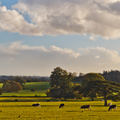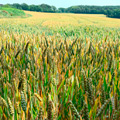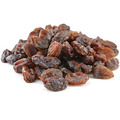Is organic farming better for the countryside?
Two key figures from the world of agriculture describe the passion and principles that drive their daily lives, and argue why they are best for rural Britain
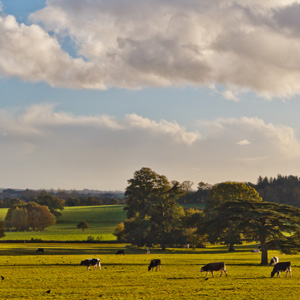
Organic
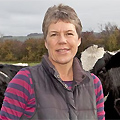 Helen Browning is chief executive of the Soil Association and runs a 1,300-acre organic farm on the north Wiltshire Downs, raising a herd of British Saddleback pigs, Friesian dairy cows and beef cattle, and growing wheat, barley and oats.
Helen Browning is chief executive of the Soil Association and runs a 1,300-acre organic farm on the north Wiltshire Downs, raising a herd of British Saddleback pigs, Friesian dairy cows and beef cattle, and growing wheat, barley and oats.
Non-organic
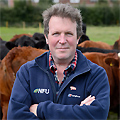 Adam Quinney is vice-president of the National Farmers’ Union and has sheep, a suckler herd and a beef finishing unit on the Warwickshire-Worcestershire border.
Adam Quinney is vice-president of the National Farmers’ Union and has sheep, a suckler herd and a beef finishing unit on the Warwickshire-Worcestershire border.
Traditional skills
Helen: For me, the best thing about being a farmer is the challenge of putting your ability to the test, planning ahead and coordinating to get everything on the farm working together. In organic farming, the focus is on building soil fertility through the use of nitrogen-fixing plants, and recycling resources such as manure and plant residues, so often there is a mix of animals and crops. At the Soil Association, we work with non-organic farmers because we can learn from each other.
Our Duchy Originals Future Farming Programme helps with funds and training to support experimentation. Our climate is changing and farmers need to adapt their approach and techniques to meet many new challenges, as well as assess their impact on the environment and our countryside. A large part of the industry is pioneering – perhaps the oldest skill in farming is inventing new ways of doing things!
Adam: Helen’s whole ethos – to focus on forward planning – also applies to those who do not farm organically and we agree wholeheartedly. We’re really pleased that the Soil Association is closely involved with the non-organic sector. Both kinds of farming employ many of the same practices, such as crop rotations, red clover and disease prevention in livestock. Helen is, of course, right that the industry should be working with the environment in mind – as well as feeding a growing population. Farmers do rely on a number of accepted methods, which can yield terrific results, but with greater demands comes innovation and this is where we adopt new technologies. A brilliant example of this is the great strides made by arable holdings that use precision farming techniques to reduce inputs, such as fuel and fertilisers, to quite startling accuracy.
Family farms
Adam: There is room in Britain for all sizes of farms. Family holdings are the backbone of British agriculture and that is true for both organic and non-organic types. Regardless, any business must look beyond the short term. In fact, often long-term planning is the only way – take, for example, apple growers, who can commit to 25-year contracts to supply cider makers. The NFU is constantly lobbying for the need for similar agreements in a variety of sectors, which would benefit the industry as a whole, organic and non-organic.
Helen: British organic farms come in all shapes and sizes, but the principles tend to be in tune with family businesses, which have a long-term vision of caring for the land and its inhabitants. If you run a farm just like any other enterprise, you can drive it too hard for short-term gain. Organic practices are good for smaller set-ups because they encourage diversity rather than relying on just one type of produce – this often means more financial stability, plus a beautiful patchwork effect on our countryside.
Animal welfare
Helen: Livestock is at the centre of organic practices – standards aim to give animals as natural a life as possible and require that they range freely whenever the weather permits, which allows them to express their innate behaviours fully. On my farm our piglets live outside in family groups, are weaned only at eight weeks and never have their teeth or tails cut off. We believe that every animal should have a truly good life – and have a humane end to it when the time comes. Food is as natural as possible, which means no GM ingredients, and the routine use of drugs is not allowed. Many scientists now acknowledge that by using antibiotics unnecessarily, we encourage the rapid spread of infections that are resistant to these medicines. I think the laws need to change to help reduce their use in farming but this will only work in practice if farmers are given the help and support they need to achieve better health for their animals without relying on antibiotics. I’m proud of how well organic farms do this but many non-organic ones are starting to as well.
Adam: I do understand the passion that Helen demonstrates when talking about organic farming, but I wouldn’t want people to get the impression that non- organic farming systems compare badly. They don’t. The key to good management of livestock is the quality of the care, and this comes down to the standard of stockmanship. Any system can be successful and meet the needs of the animal, if this is high enough. British farmers work to some of the best levels of welfare compared to other European countries. Conventional farmers, through Red Tractor, are employing animal health measures such as animal health planning with their vet to prevent disease and promote the responsible use of medicines. Another example of this is that broiler hens have more room than the UK legal limit, which is already greater than European legislation stipulates. Conventional farmers are just as passionate about animal health and welfare as organic ones, and many of the medicines applied on their holdings are also used by organic farmers.
The natural world
Adam: Gone are the days of 1970s blanket spraying – pesticide usage has been declining since 1990 and that is despite a larger area of farmland being treated each year. Also, in the past two decades, there has been a revival of hedge planting on farms, and more than 106,000 miles of hedgerows are now under specific environmental management. Both organic and non-organic farmers are committed to wildlife habitats on their land, and many sign up for schemes where they receive payments for managing flora and fauna. In fact, these cover 70 per cent of agricultural land and the RSPB acknowledges that the industry is working hard to maintain and enhance our countryside. In addition, many have embraced the Campaign for the Farmed Environment (CFE), a voluntary scheme aimed at maintaining and improving habitats and landscapes.
Helen: Caring about flora and fauna is integral to organic systems – fitting into local ecology and making the best of it as a source of soil fertility, for managing pests and diseases, and for nourishing animals. This has pioneered ways of farming that rely more on nature and renewable resources, and drastically cut the need to buy in fertiliser and feed. One of the biggest changes I noticed when I converted to organic was that fewer delivery trucks came up the road. On such a farm, you will often find patches of beautiful blue cornflowers or bright-red poppies in the middle of a wheat field, which help to support biodiversity throughout the crop, not just around the edges. A study by English Nature and the RSPB found that there are more wild flowers, bats, beetles, birds and butterflies on organic holdings. On average, wildlife is 50 per cent more abundant with almost a third more species, according to a separate report. But it’s important to remember that organic farmland covers only around five per cent of the UK’s land area. To work towards a positive future for our countryside, the big gains will come from the majority of British farmers taking steps in the same direction and looking at more environmental systems, such as using clover or other plants, to get the soil fertility they need.
Find out more
Organic September is a celebration of produce and an opportunity to discover more about organic farmers. The Soil Association’s ‘Small Changes, Big Difference’ campaign is asking people to make minor adjustments to their shopping habits to support British organic farmers, such as buying a pint of organic milk or a certified moisturising cream. There will also be opportunities to try new recipes, visit a farm and take part in competitions. For more information, visit soilassociation.org/bigdifference.
Do you believe organic farming is better for the countryside? Tell us in the comments box, below.
You might also like...
Should we grow fuel as well as food?
10 ways to an organic garden
See all our rural issues and debates



